Statins and Cancer: A Complex Relationship Worth Exploring
Conflicts of Interest
References
- Liang, Z.; Zhang, Z.; Tan, X.; Zeng, P. Lipids, cholesterols, statins and liver cancer: A Mendelian randomization study. Front. Oncol. 2023, 13, 1251873. [Google Scholar] [CrossRef] [PubMed]
- Malenda, A.; Skrobanska, A.; Issat, T.; Winiarska, M.; Bil, J.; Oleszczak, B.; Sinski, M.; Firczuk, M.; Bujnicki, J.M.; Chlebowska, J.; et al. Statins impair glucose uptake in tumor cells. Neoplasia 2012, 14, 311–323. [Google Scholar] [CrossRef] [PubMed]
- Winiarska, M.; Bil, J.; Wilczek, E.; Wilczynski, G.M.; Lekka, M.; Engelberts, P.J.; Mackus, W.J.; Gorska, E.; Bojarski, L.; Stoklosa, T.; et al. Statins impair antitumor effects of rituximab by inducing conformational changes of CD20. PLoS Med. 2008, 5, e64. [Google Scholar] [CrossRef] [PubMed]
- Heart Protection Study Collaborative Group. MRC/BHF Heart Protection Study of cholesterol lowering with simvastatin in 20,536 high-risk individuals: A randomised placebo-controlled trial. Lancet 2002, 360, 7–22. [Google Scholar] [CrossRef] [PubMed]
- Morofuji, Y.; Nakagawa, S.; Ujifuku, K.; Fujimoto, T.; Otsuka, K.; Niwa, M.; Tsutsumi, K. Beyond Lipid-Lowering: Effects of Statins on Cardiovascular and Cerebrovascular Diseases and Cancer. Pharmaceuticals 2022, 15, 151. [Google Scholar] [CrossRef] [PubMed]
- Grabarek, B.O.; Boron, D.; Morawiec, E.; Michalski, P.; Palazzo-Michalska, V.; Pach, L.; Dziuk, B.; Swider, M.; Zmarzly, N. Crosstalk between Statins and Cancer Prevention and Therapy: An Update. Pharmaceuticals 2021, 14, 1220. [Google Scholar] [CrossRef] [PubMed]
- Chalhoub, I.G.; Boulos, R.T.; Dagher, Y.G.; El Helou, S.; Haifa, K.G.; Atallah, B.; Nasr, F.; Kassab, I.; Chahine, M.N. Statins, commonly coprescribed drugs, and concomitant risk factors: A protective, neutral, or harmful association with common cancer types development: A 10-year multicentric retrospective lebanese study. Medicine 2023, 102, e34562. [Google Scholar] [CrossRef] [PubMed]
- Zaleska, M.; Mozenska, O.; Bil, J. Statins use and cancer: An update. Future Oncol. 2018, 14, 1497–1509. [Google Scholar] [CrossRef] [PubMed]
- Issat, T.; Nowis, D.; Legat, M.; Makowski, M.; Klejman, M.P.; Urbanski, J.; Skierski, J.; Koronkiewicz, M.; Stoklosa, T.; Brzezinska, A.; et al. Potentiated antitumor effects of the combination treatment with statins and pamidronate in vitro and in vivo. Int. J. Oncol. 2007, 30, 1413–1425. [Google Scholar] [CrossRef] [PubMed]
- Bil, J.; Zapala, L.; Nowis, D.; Jakobisiak, M.; Golab, J. Statins potentiate cytostatic/cytotoxic activity of sorafenib but not sunitinib against tumor cell lines in vitro. Cancer Lett. 2010, 288, 57–67. [Google Scholar] [CrossRef] [PubMed]
- Chen, C.Y.; Yang, Y.F.; Wang, P.C.; Shan, L.; Lin, S.; Chen, P.J.; Chen, Y.J.; Chiang, H.S.; Lin, J.T.; Hung, C.F.; et al. Simvastatin Attenuated Tumor Growth in Different Pancreatic Tumor Animal Models. Pharmaceuticals 2022, 15, 1408. [Google Scholar] [CrossRef] [PubMed]
- Kobayashi, Y.; Takeda, T.; Kunitomi, H.; Chiwaki, F.; Komatsu, M.; Nagai, S.; Nogami, Y.; Tsuji, K.; Masuda, K.; Ogiwara, H.; et al. Response Predictive Markers and Synergistic Agents for Drug Repositioning of Statins in Ovarian Cancer. Pharmaceuticals 2022, 15, 124. [Google Scholar] [CrossRef] [PubMed]
- Tulk, A.; Watson, R.; Erdrich, J. The Influence of Statin Use on Chemotherapeutic Efficacy in Studies of Mouse Models: A Systematic Review. Anticancer Res. 2023, 43, 4263–4275. [Google Scholar] [CrossRef]
- Zhou, Q.; Jiao, Z.; Liu, Y.; Devreotes, P.N.; Zhang, Z. The effects of statins in patients with advanced-stage cancers—A systematic review and meta-analysis. Front. Oncol. 2023, 13, 1234713. [Google Scholar] [CrossRef]
- Stepien, K.; Nowak, K.; Kachnic, N.; Horosin, G.; Walczak, P.; Karcinska, A.; Schwarz, T.; Wojtas, M.; Zalewska, M.; Pastuszak, M.; et al. Statin Use in Cancer Patients with Acute Myocardial Infarction and Its Impact on Long-Term Mortality. Pharmaceuticals 2022, 15, 919. [Google Scholar] [CrossRef] [PubMed]
- Saka-Herran, C.; Jane-Salas, E.; Mano-Azul, A.; Torrejon-Moya, A.; Estrugo-Devesa, A.; Lopez-Lopez, J. Effects of the Prior Use of Statins on Head and Neck Cancer Risk: A Hospital-Based Case-Control Study. Pharmaceuticals 2022, 15, 579. [Google Scholar] [CrossRef] [PubMed]
- Kwon, M.J.; Kang, H.S.; Kim, J.H.; Kim, J.H.; Kim, S.H.; Kim, N.Y.; Nam, E.S.; Min, K.W.; Choi, H.G. Association between Statin Use and Gastric Cancer: A Nested Case-Control Study Using a National Health Screening Cohort in Korea. Pharmaceuticals 2021, 14, 1283. [Google Scholar] [CrossRef] [PubMed]
- Frisk, G.; Bergstrom, H.; Helde Frankling, M.; Bjorkhem-Bergman, L. Sex-Differences in Discontinuation of Statin Treatment in Cancer Patients the Year before Death. Pharmaceuticals 2021, 14, 368. [Google Scholar] [CrossRef] [PubMed]
- Hou, Y.C.; Shao, Y.H. The Effects of Statins on Prostate Cancer Patients Receiving Androgen Deprivation Therapy or Definitive Therapy: A Systematic Review and Meta-Analysis. Pharmaceuticals 2022, 15, 131. [Google Scholar] [CrossRef] [PubMed]
Disclaimer/Publisher’s Note: The statements, opinions and data contained in all publications are solely those of the individual author(s) and contributor(s) and not of MDPI and/or the editor(s). MDPI and/or the editor(s) disclaim responsibility for any injury to people or property resulting from any ideas, methods, instructions or products referred to in the content. |
© 2023 by the author. Licensee MDPI, Basel, Switzerland. This article is an open access article distributed under the terms and conditions of the Creative Commons Attribution (CC BY) license (https://creativecommons.org/licenses/by/4.0/).
Share and Cite
Bil, J. Statins and Cancer: A Complex Relationship Worth Exploring. Pharmaceuticals 2023, 16, 1570. https://doi.org/10.3390/ph16111570
Bil J. Statins and Cancer: A Complex Relationship Worth Exploring. Pharmaceuticals. 2023; 16(11):1570. https://doi.org/10.3390/ph16111570
Chicago/Turabian StyleBil, Jacek. 2023. "Statins and Cancer: A Complex Relationship Worth Exploring" Pharmaceuticals 16, no. 11: 1570. https://doi.org/10.3390/ph16111570




